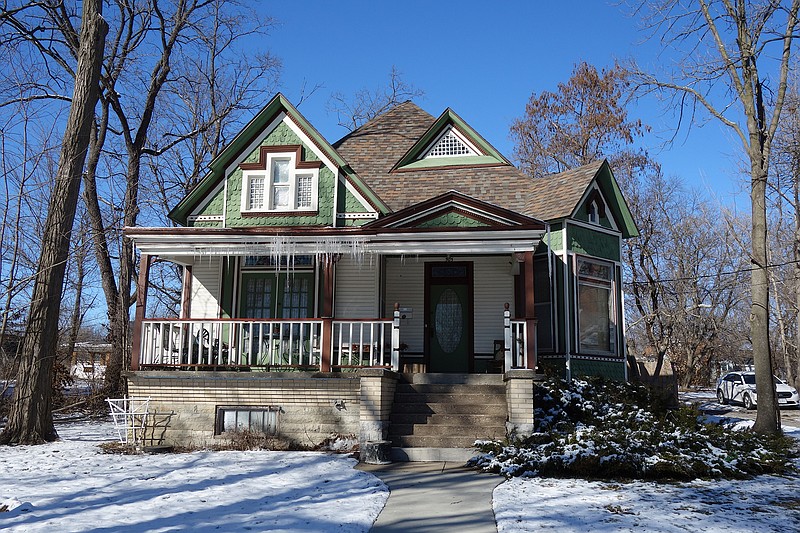The controversy around the proposed new Fulton historic preservation code heated up again during Tuesday's City Council meeting.
Council members clashed over whether a new review requirement is too restrictive to property owners, while a local real estate agent raised concerns over how it affects those buying and selling homes.
"As a realtor, one of the things I do is protect homeowner rights," said Chuck Garriott, of Garriott and Associates. "I'm asking the City Council to review this ordinance and consult with those in the industry."
The ordinance
Much of the new Chapter 62 is similar to the previous code chapter. Other parts have been modified based on a historic preservation code in use in Washington, Missouri.
Under the new process, anyone seeking to perform construction or demolition on a property that would require a city permit within a Fulton historical district will have to submit their project to review by the HPC. (This includes non-historic homes within the districts.) Activities such as ordinary or emergency repairs and maintenance, interior remodeling, landscaping, and the construction of unenclosed patios and small gazebos do not require a design review.
Property owners seeking to carry out construction that does require a review must complete an application and submit it to the HPC. The HPC must then meet within 30 days with the applicant or the applicant's representative to go over the planned changes and issue recommendations.
"We'll give them some suggestions to keep the property within the aesthetics of the neighborhood," said David McDaniel, current president of the HPC, during a previous board meeting.
Those suggestions might include notes about roof shape, landscaping, architectural materials, types of windows and doors used, and more. Following the meeting, the HPC will issue a certificate of review.
The new chapter makes it clear the HPC's suggestions are non-binding - a homeowner may disregard them at will. However, if the applicant or a representative fails to attend a meeting with the HPC, the city will not issue a permit for the construction/demolition, according to the draft code chapter. On the other hand, if the HPC fails to set a meeting within 30 days of the application, the city is to go ahead and issue the permit.
The ordinance also requires the City of Fulton to submit to a review process for municipal improvements and signage within a historic district. Any significant changes from plans previously reviewed by the HPC must be resubmitted. Though, once again, the HPC's recommendations are non-binding, they "shall be considered in the decisions of city officials and the City Council."
The debate
Fulton City Council members first rejected the new chapter in October, sending it to the Missouri Department of Natural Resources' State Historic Preservation Office. It reemerged, with a few minor language tweaks, as Bill No. 1576 during the second January council meeting.
"This keeps getting tossed around," Mayor Lowe Cannell said.
During Tuesday night's meeting, Bill 1576 had its second reading and was passed to its third reading, which will take place during the Feb. 25 meeting. Ward 4's Rick Shiverdecker and Ward 3's John Braun voted "no."
The vote was hardly smooth sailing, however.
"I have a problem with us trying to mandate to citizens what they can or can't do with their own property," Braun said. "I voted no before, and I'm not changing my vote."
"I'm not changing mine either," Ward 2's Jeff Stone said. "If we're going to be a historic community, we need a historic preservation committee and the ordinance that goes along with it."
That's accurate, city clerk Courtney Crowson said - the city participates in Missouri Certified Local Government Program, which does require enacting a historic preservation ordinance, maintaining an HPC, and conducting outreach and education.
Part of the HPC's duties, as laid out by DNR guidelines, do involve "reviewing all alterations, relocation, demolition or new construction affecting designated properties under the jurisdiction of the CLG." The previous Chapter 62 did not lay out a review process, meaning it wasn't aligned with DNR guidelines for participation in the CLG program.
"People don't like being told they could be delayed up to 30 days," Crowson said. "They want to be able to take or leave (the suggestions). We're not in compliance with the CGL, but we haven't been since the dawn of time."
There was some talk of seeking out further input from the public, as Cannell did in a Facebook post last week. However, Ward 4's Steve Moore expressed eagerness to move the ordinance forward.
"If we start opening it up we did an animal ordinance, and it took us three years," he said.
Council members suggested Garriott meet with members of the Historic Preservation Commission to discuss his concerns. During Tuesday's meeting, he cited hesitancy over homeowners potentially being forced to wait for 30 days to begin renovations.

